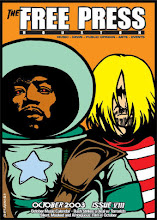DVD slight return
Are we in the last phase of DVD dominance as digital downloads seek to supplant the DVD disc as a primary source of traditional entertainment? Most probably. People I know like to watch DVD seasons of recent cool shows like Arrested Development or Lost. But I’m old school and I need to luminous glow of 50s and 60s dramas and sit-coms to lull my dreams to fruition.
Even though I spent hours (typical seasons were 28 or more episodes then) viewing eps it only took minutes to realize the shows sucked on so many levels. Yet I couldn’t turn away as what I though would be a nostalgic reverie was replaced by a sociological tract of the simplicity of the times.
In 1963 the seventh season of Wagon Train expanded to 90-minute color episodes. Time must have been leisure because later 60s westerns also spun an-hour-and-a-half (The Virginian, Cimarron Strip). The scenery of Lone Pine enhances the tales of the pioneers on display but the stories seemed mired in typical plot scenarios (like a kidnapped child now grown and raised as Comanche and referred to as a squaw played by Carolyn Jones with her Indian brother played by teen pop singer Fabian). Barbara Stanwyck shows up pre-Big Valley to provide justice but the politics of the day dictate otherwise.
Lee Marvin played a mean cop who tries to rationalize his righteousness with tough talk for three seasons (1957–1960) in M Squad. All 117 episodes are available in a monster set of 15 DVDs. The show even faded and black-and-white has a seedy atmosphere to go along with its urban crime sleuthing. Marvin's a kind of Internal Affairs cop so he investigates different styles of cases week to week.
McHale’s Navy in its fourth and last season moved the crew of the PT 73 from the Pacific theater to Italy. Ernest Borgnine speaks in Italian a lot and Tim Conway has a flair for drag comedy. It speaks volumes that this comic version of war where nobody get killed, complete with bathing suit beauties from the local villa, was popular while the Vietnam war was trudging along.
Father Knows Best doesn’t fare much better with its standard situations and lily white depiction of 50s America. Still in Season Two it seems this show paved the road for all the family shows to follow. There’s a spirited wisdom to Robert Young’s dad that was lacking even with the paterfamilias in Leave it to Beaver, Donna Reed and Ozzie and Harriet. One episode was even a stand alone western (Stage to Yuma) with Young that featured none of the other cast members. I guess running a pilot during the season was considered experimental in 1955.
Moving up a couple of decades in time and also up in quality is Shelly Duvall’s Faerie Tale Theatre. These amazing 26 enchanted stories were first broadcast on Showtime cable in the mid-80s. Each story, whether a classic like Pinocchio (Paul Reubens) or a more obscure tale like Rumpelstiltskin (Herve Villechaize) gets the star treatment with a guest director and superlative cast. Take the Three Little Pigs with Billy Crystal as a pig and Jeff Goldblum as the big bad wolf. Not every story has a happy Disney ending such as The Little Mermaid’s Pam Dawber who must outsmart whiny witch Karen Black. In Little Red Riding Hood Malcolm McDowell comes as close to Alex (Clockwork Orange) as he ever has even though he’s also a big bad wolf. As great as James Earl Jones always is I daresay his evil genie is definitive in Aladdin and His Wonderful Lamp. The latter episode was directed by Tim Burton early in his career yet still shows his distinct visual style. For the most part the sets are like color enhanced live television and the biggest players are the flowing costumes, grandiose like you expect with fairy tales. The set comes with a playing card deck of characters for downtime.









0 Comments:
Post a Comment
<< Home